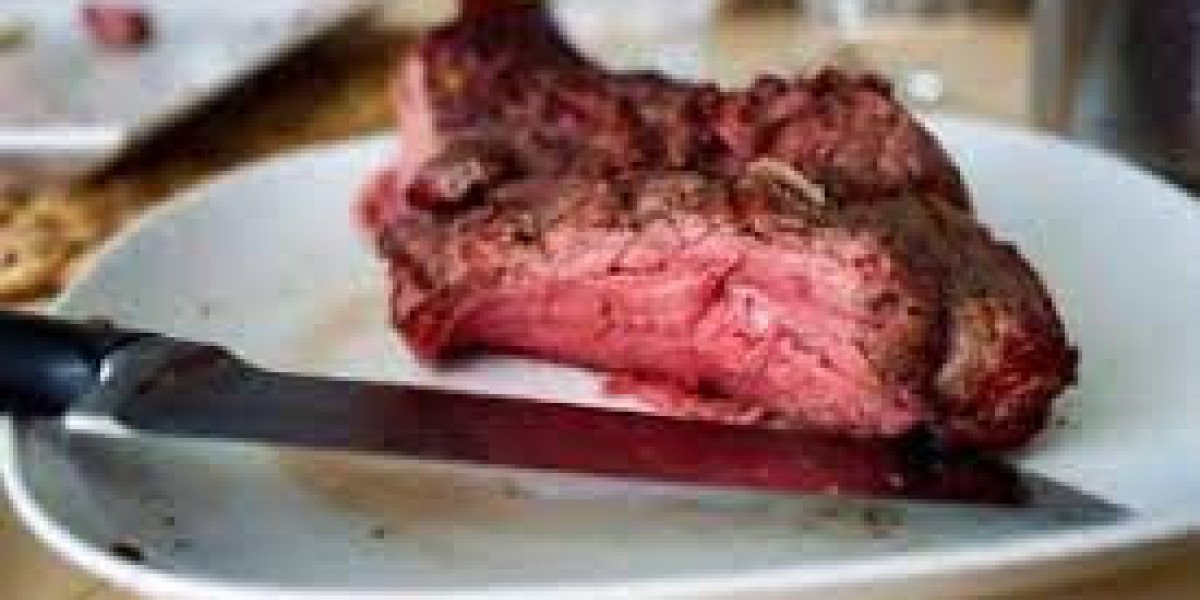The carnivore diet is a highly restrictive, animal-based eating plan that has gained attention in recent years, particularly for its potential benefits for weight loss. Unlike other popular diets that focus on cutting carbs, fat, or calories, the carnivore diet completely eliminates all plant-based foods. Instead, it emphasizes animal products like meat, fish, eggs, and animal fats. As a result, followers of the carnivore diet experience a range of effects, including a shift in metabolism, reduction in appetite, and easier weight management. In this article, we explore how the carnivore diet works for weight loss, its benefits, and considerations to keep in mind before diving in.
How the Carnivore Diet Works for Weight Loss
The core principle of the carnivore diet is simple: it eliminates carbohydrates entirely, meaning your body must rely on fat and protein as its primary sources of energy. This shift in macronutrient consumption has several metabolic effects that promote fat loss:
Ketosis: Without carbohydrates to break down into glucose for energy, the body enters a state called ketosis, where it burns stored fat for fuel. This leads to weight loss, as fat becomes the body’s primary energy source.
Stable Insulin Levels: When you eliminate carbs, insulin levels stabilize. Insulin is a hormone that regulates blood sugar and fat storage. High carbohydrate intake causes insulin spikes, which can promote fat storage. By keeping insulin levels low, the carnivore diet helps the body burn fat more effectively.
Increased Fat Burning: When on the carnivore diet, fat is not only the body’s primary fuel source but also supports the burning of stored fat. Since fat is converted into ketones for energy, the body becomes more efficient at utilizing its fat reserves.
Benefits of the Carnivore Diet for Weight Loss
- Reduced Hunger and Cravings
One of the most significant advantages of the carnivore diet for weight loss is its ability to curb hunger. Since animal-based foods are nutrient-dense and high in protein and fat, they help people feel fuller for longer. The satiating nature of protein-rich meals leads to reduced calorie intake, which naturally supports weight loss.
Additionally, by eliminating foods that trigger cravings (such as sugar and processed carbohydrates), the carnivore diet reduces the likelihood of overeating. Many people report feeling more in control of their eating habits, as their body adjusts to using fat as fuel, rather than seeking quick energy from carbs.
- Simplified Eating Plan
The carnivore diet’s simplicity can also make weight loss more manageable. With fewer food choices, people often find it easier to stick to their eating plan. There’s no need to count calories, carbs, or macros. By focusing exclusively on animal products, meal preparation becomes straightforward, which can help individuals avoid temptations and make more intentional food choices.
Additionally, the diet encourages whole, unprocessed foods, which removes many of the hidden sugars and additives present in packaged foods. This focus on clean eating can lead to significant improvements in overall health, including weight loss.
- Higher Fat Oxidation and Muscle Preservation
Because of its high protein content, the carnivore diet can help preserve lean muscle mass while burning fat. Protein plays a critical role in muscle repair and growth, and during weight loss, it helps prevent the breakdown of muscle tissue. Muscle mass is essential for maintaining a healthy metabolism, so preserving it while shedding fat can help individuals sustain their weight loss in the long run.
Furthermore, the body’s increased reliance on fat as a fuel source improves fat oxidation, which is the process of burning stored fat for energy. As the body becomes more efficient at oxidizing fat, weight loss becomes more sustainable and effective.
- Improved Insulin Sensitivity
As mentioned, the carnivore diet helps stabilize blood sugar and insulin levels. This is particularly beneficial for individuals who struggle with insulin resistance or pre-diabetes. By removing carbohydrates, the diet prevents insulin spikes and helps the body become more sensitive to insulin. This, in turn, can make weight loss easier and more efficient, as the body no longer needs to store excess fat in response to high blood sugar.
- Reduced Inflammation
Chronic inflammation is often linked to weight gain and difficulty losing weight. Many people with obesity or metabolic disorders experience higher levels of inflammation, which can disrupt fat metabolism and promote fat storage. By cutting out inflammatory foods like sugars, processed grains, and artificial additives, the carnivore diet may help reduce overall inflammation. With less inflammation, the body’s ability to lose weight may improve, and fat loss becomes easier.
Potential Challenges and Considerations
While the carnivore diet can be effective for weight loss, it is important to note that it is highly restrictive and may not be suitable for everyone. Here are some things to consider before starting the diet:
Nutrient Deficiencies: Because the carnivore diet excludes all plant-based foods, it can lead to deficiencies in certain vitamins and minerals, including vitamin C, fiber, and potassium. While animal products, especially organ meats, provide a wide range of essential nutrients, supplementation or careful food selection may be necessary for long-term health.
Social and Lifestyle Limitations: The diet’s strict nature can make it challenging to adhere to in social settings, restaurants, or while traveling. The lack of variety can lead to food monotony, making the diet difficult to sustain over time.
Digestive Issues: The absence of dietary fiber can cause digestive issues for some individuals, such as constipation or bloating. Drinking plenty of water and consuming fatty cuts of meat can help alleviate these issues, but they may still pose a challenge for some.
Heart Health Concerns: The high intake of animal fats, particularly saturated fat, may raise concerns about heart health, especially for those with pre-existing cardiovascular conditions. While recent studies have questioned the connection between saturated fat and heart disease, individuals with heart conditions should consult a healthcare provider before beginning the diet.
Conclusion
The carnivore diet can be an effective tool for weight loss, offering benefits such as fat burning, increased satiety, improved insulin sensitivity, and reduced inflammation. By eliminating carbohydrates and focusing on nutrient-dense animal products, the body enters a state of ketosis that accelerates fat loss and reduces the likelihood of overeating.
However, the diet’s restrictive nature may not be suitable for everyone, and it’s essential to monitor your health closely when adopting such a high-protein, high-fat eating plan. For those who can handle the lifestyle changes and potential challenges, the carnivore diet may offer a straightforward, effective way to achieve and maintain weight loss. As with any major dietary change, it’s always advisable to consult with a healthcare professional before beginning the carnivore diet.






